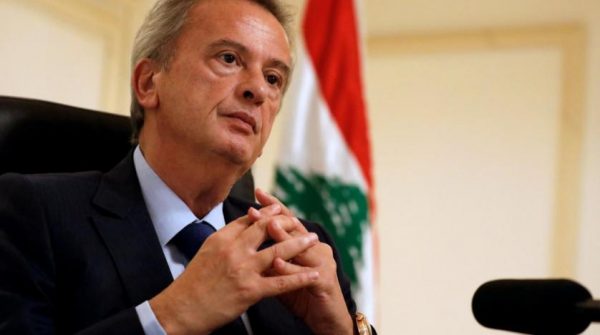
Lebanon’s Central Bank Governor Riad Salameh has been communicating with several Arab and Western capitals in an attempt to avert “any possible threat, especially to the monetary situation,” a Nidaa al-Watan daily reported on Thursday
“Salameh explained the current situation to the Arab and foreign officials whom he communicated with, urging them to stand by Lebanon in this critical period and to find technical monetary solutions regardless of the local and foreign political crises,”the report stated
“The governor sensed the presence of limited and specific solutions, amid Arab and international dismay over the Lebanese government’s policies and the disputes of its components,” the daily added.
“Some Arab countries are mulling the possibility of depositing significant sums of money in Banque du Liban but are at the same time expressing certain reservations,” the daily said.
This development comes after Salameh restated that the status of the Lebanese pound ” Lira” is “stable” and denied that Lebanon is on the verge of bankruptcy
“All talk that Lebanon is a country facing the risk of bankruptcy is unjustified scientifically and in the language of numbers,” Salameh said during an economic conference in Bkirki last Saturday
The Central bank is the only viable institution in Lebanon and if it was not for Salameh the Lebanese currency would have been by now worthless according to analysts.
The economic situation in Lebanon is the worst it has been for years . Growth reached an all-time low of 0.2 percent last year. It slowed further after the Central Bank halted subsidized housing loans through commercial banks, contracting the real estate market, a main engine for growth since 2012. The budget deficit reached 11 percent of GDP, up from 8.6 percent in 2017, and public debt stands at 150% of GDP, one of the highest in the world. Fuel imports have increased, further deepening a trade deficit.
According to financial reports growth in 2019 will be negative
A recently approved budget that reduces public debt, improves governance and reforms infrastructure could unlocksome $11 billion in aid promised to Lebanon last year by European countries. But after weeks of delay amid haggling among the government and lawmakers, the result is a bill that mostly taps into the pockets of average Lebanese, while critics say it does little to tackle structural issues and deeply entrenched corruption at the root of the crisis.
Lebanon is very dependent on the financial support it gets from the neighboring Arab Gulf countries , who do not like what they see in Lebanon from corruption to Iran’s influence to the country’s s inability to govern itself .

Leave a Reply
You must be logged in to post a comment.